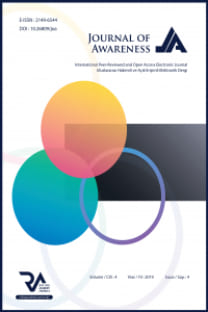Enerji güvenliği politika yapıcı aktörler
Enerjide dışa bağımlılıktan kurtulma, enerji kaynaklarının ve menşelerinin çeşitlendirilmesi ve yay-gın kullanılan enerji ikmal hatlarının güvenliğinin sağlanması; ülkelerin siyaseti, ekonomisi ve ulusal güvenliği kapsamında özellikle enerjinin günlük hayatımızın vazgeçilmez bir parçası olması ile daha büyük önem arz etmeye başlamıştır. Bu kapsamda, enerji güvenliği kavramı; önemine binaen gerek medyada gerekse de akademik yayınlarda sıklıkla kullanılan ve kendisine atıf yapılan bir terim halini almıştır. Özellikle 1973-74, 1979-1980 ve 1989-1990 yıllarında yaşanan petrol kesintisi ve varil fiyatları-nın yükselişi neticesinde gelişen Petrol Krizleri ile 2022 yılında Rusya’nın Ukrayna’yı işgali ardından yaşanan Enerji Krizi ile enerji güvenliği gündemin üst sıralarında değerlendirilmekte ve tartışılmakta-dır. Medya genel bir kanı olarak; yasama, yürütme ve yargının ardından bir kuvvet olarak görülse de ça-lışma kapsamında mülakatlar ile ulaşılan sonuçlarda enerji güvenliği gibi önemli bir alandaki politika yapım ve belirleme süreçlerinde birincil bir aktör olarak yeri incelenmiş ve paylaşılmıştır
Anahtar Kelimeler:
Türkiye, Enerji, Enerji güvenliği, Politika yapıcı aktörler, Medya
Energy security policy-making actors
Getting rid of foreign dependency in energy, diversifying energy sources and their origins, and ensuring the security of widely used energy supply lines; Within the scope of the politics, economy and national security of the countries, it has started to become more important, especially with the energy being an indispensable part of our daily lives. In this context, the concept of energy security; Due to its importance, it has become a term that is frequently used and referred to both in the media and in academic publications. Especially with the Oil Crises that developed as a result of the oil cut and the rise in barrel prices in 1973-74, 1979-1980 and 1989-1990, and the Energy Crisis after the Russian invasion of Ukraine in 2022, energy security is considered and discussed at the top of the agenda. As a general opinion of the media; Although it is seen as a force after the legislature, the executive and the judiciary, its place as a primary actor in the policy making and determination processes in an important field such as energy security has been examined and shared in the results obtained through the interviews within the scope of the study.
Keywords:
Turkey, Energy, Energy security, Policy-making actors, Media,
___
- BIRKLAND, T. A. (2001). An Introduction to Policy Process: Theories, Concepts and Models of Public Policy Making. New York: M. E. Sharpe Inc.
- BLAZEV, A. S. (2015). Energy Security for the 21st Century. USA: Fairmont Press.
- CIUTĂ, F. (2010). Conceptual Notes on Energy Security: Total or Banal Security. Security Dialogue. 41(2).
- DANNREUTHER, R. (2017). Energy Security. Malden, ABD: Polity Press.
- NYE, J. (1982). Energy and Security in the 1980’s. World Politics, 35 (1).
- SOVACOOL, B.K. (2010). The Routledge Handbook of Energy Security. London: Routledge.
- SOVACOOL, B.K. (2011). Evealuating Energy Security in the Asia Pacific: Towards a more comprehensive approach. Energy Policy, 39.
- YERGIN, D. (1995). Petrol Para ve Güç Çatışmasının Epik Öyküsü. İstanbul: Türkiye İş Bankası Kültür Yayınları
- YERGIN, D. (2011). The Quest. New York: The Penguin Press.
- ISSN: 2149-6544
- Başlangıç: 2016
- Yayıncı: Rating Academy
Sayıdaki Diğer Makaleler
The use of textures as a visual design element in cut-out illustrations
Kültürlerarası pazarlama iletişimi farklılıkları
Generating video game characters using StyleGAN2
Enerji güvenliği politika yapıcı aktörler
Dijital girişimcilik ekosisteminde sürdürülebilirlik
Sarnıç temalı kültür rotası oluşturulması; İstanbul Tarihi Yarımadası Örneği
Mustafa Yağız FIRAT, Adem Erdem ERBAŞ
Dijital çağda medya ve hastalıkları
Dijital teknoloji çağında müzik
The case of cultural schizophrenia: Alleged tampering with DNA codes via Covid-19 vaccines
